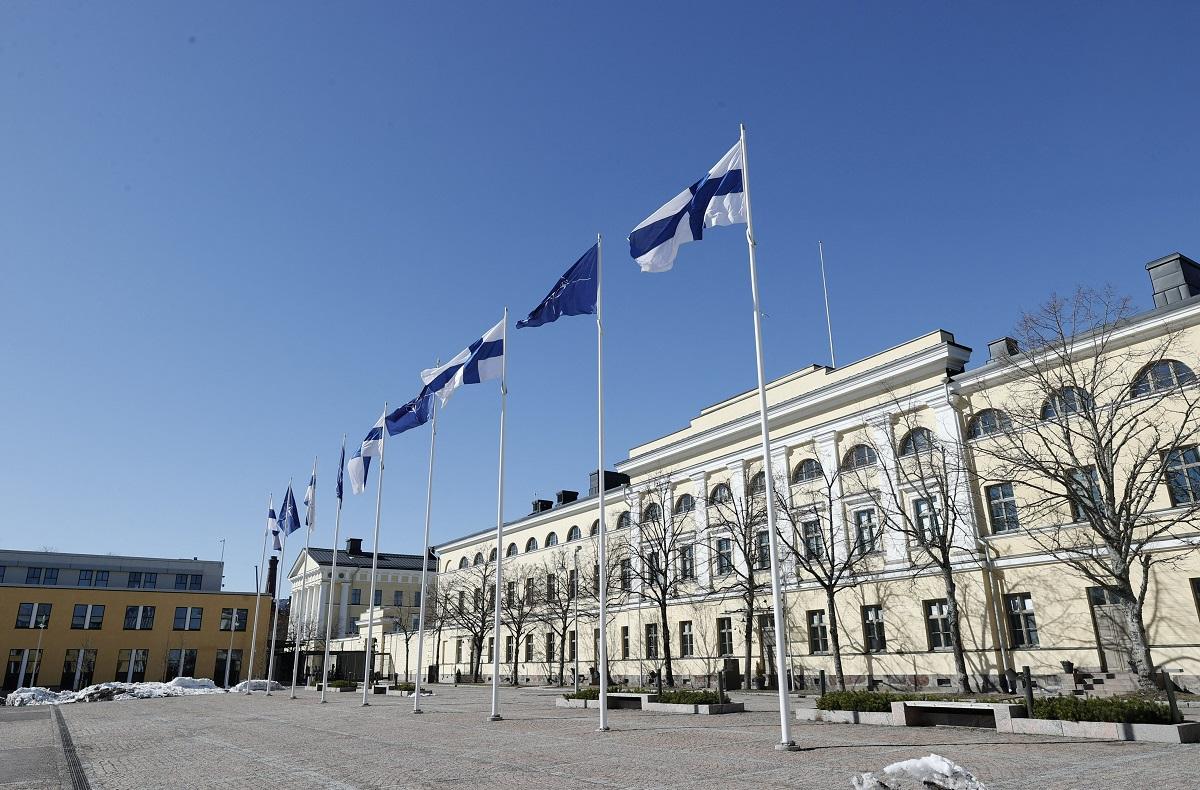Finland becomes 31st member of NATO

BRUSSELS — Finland became the 31st member of NATO on Tuesday, in a historic realignment of Europe's defenses that drew an angry warning of "countermeasures" from the Kremlin.
Russia's all-out invasion of Ukraine last year upended Europe's security landscape and prompted Finland—and its neighbor Sweden—to drop decades of military non-alignment.
Finland's Foreign Minister Pekka Haavisto formally wrapped up the process by handing Helsinki's accession papers to US Secretary of State Antony Blinken, the formal keeper of NATO's founding treaty.
"With receipt of this instrument of accession, we can now declare that Finland is the 31st member of the North Atlantic Treaty," Blinken said, at a ceremony in NATO's Brussels headquarters.
NATO chief Jens Stoltenberg said that Russian President Vladimir Putin had "wanted to slam NATO's door shut. Today we show the world that he failed, that aggression and intimidation do not work."
"Finland now has the strongest friends and allies in the world," he said.
Joining NATO places Finland under the alliance's Article Five, the collective defense pledge that an attack on one member "shall be considered an attack against them all."
This was the guarantee Finnish leaders decided they needed as they watched Putin's devastating assault on Ukraine.
Finnish President Sauli Niinisto said: "It is a great day for Finland and I want to say that it is an important day for NATO."
But Moscow erupted in fury at the move, which doubles its land border with NATO member states to 2,500 kilometers (1,550 miles), branding it an "assault" on Russia's security and national interests.
"This forces us to take countermeasures... in tactical and strategic terms," Kremlin spokesman Dmitry Peskov said.
Powerful military
Invaded by its giant neighbor, the Soviet Union, in 1939, Finland—which has a 1,300-kilometer border with Russia—stayed out of NATO throughout the Cold War.
Now its membership brings a potent military into the alliance with a wartime strength of 280,000 and one of Europe's largest artillery arsenals.
Its strategic location bolsters NATO's defenses on a border running from the vulnerable Baltic states to the increasingly competitive Arctic.
Senior NATO military commander Admiral Rob Bauer told AFP that Finland had so far not requested its new allies station troops on its soil.
NATO officials say the war in Ukraine has sapped Moscow's forces, but the alliance is monitoring how Russia responds to gauge its future steps.
Awkward allies Turkey and Hungary, for different reasons of their own, delayed Finland's bid to come under the NATO umbrella—and Stockholm's progress remains blocked.
But last week, the Turkish parliament voted to clear Finland's final hurdle.
Completing the ratification in well under a year still makes this the fastest membership process in the alliance's recent history.
NATO was created as a counterweight to the Soviet Union at the onset of the Cold War era that began immediately after the Allies defeated Nazi Germany.
Sweden soon?
Finland's arrival nevertheless remains a bittersweet moment for the alliance as the hope had been for Sweden to come on board at the same time.
Budapest and Ankara remain the holdouts after belatedly agreeing to wave through Helsinki's bid.
Sweden has upset Hungary's leader Viktor Orban—one of Putin's closest allies in Europe—by expressing alarm over the rule of law in Hungary.
It has also angered Turkey by refusing to extradite dozens of suspects that President Recep Tayyip Erdogan links to a failed 2016 coup attempt and the decades-long Kurdish independence struggle.
NATO diplomats hope Erdogan will become more amenable if he weathers elections next month and that Sweden will join before a NATO summit in Vilnius this July.
Ukraine is also pushing for eventual NATO membership, but Western diplomats say that still remains a distant prospect.
"There is no better strategic solution to ensuring strategic security in the Euro Atlantic region than the membership of Ukraine in the alliance," Ukraine's Foreign Minister Dmytro Kuleba said.
NATO members in the meantime insist they are focused on providing Ukraine with the weaponry and support it needs to win the war with Russia. — AFP




